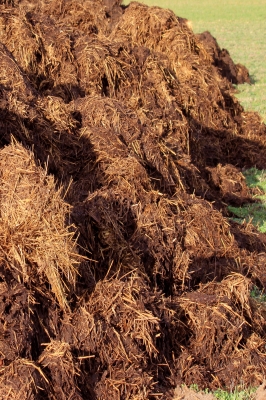Natural vs Chemical Fertilizers
Understanding the difference between natural and chemical fertilizers is crucial as the demand for organic products and awareness about them among consumers have reached an all-time high. Fertilizer is a substance applied to plants to supplement nutrients needed for growth and production. This fertilizer can be divided into two major groups: natural fertilizer and inorganic fertilizer or chemical fertilizer. This article intends to discuss the characteristics and differences between natural and chemical fertilizers.
What is Natural Fertilizer?
Natural fertilizer (also known as organic fertilizer) includes biodegradable compounds such as green manure, animal waste, and compost. In other words, the application of any natural organism or element for the improvement of soil fertility is referred to as natural fertilizer. Natural fertilizers release chemicals slowly to the soil, making them suitable for long-term crops such as perennials. On the other hand, natural fertilizers are enriched with micronutrients other than macronutrients. At present, micronutrients are a limiting factor of fertilizer application. Therefore, there is a high demand for organic fertilizer. On the other hand, natural fertilizers include more nutrients together. Also, natural fertilizer minimizes the negative environmental impacts. Natural fertilizers are cheaper than artificial fertilizer. They have minimum health hazards. Therefore, they are applicable in environmentally sensitive areas, such as home gardens. Since organic fertilizer improves the soil texture and the water holding capacity of the soil, it prevents soil erosion.
What is Chemical Fertilizer?
Chemical fertilizer is a synthetic fertilizer made out of non-degradable elements. This fertilizer comprises one or two essential growth nutrients. It releases chemicals quickly, making it suitable for fast-growing crops or annual crops. During the manufacturing process, chemical fertilizers incorporate with acids, which cause environmental hazards. Urea, MOP (muriate of potash), superphosphate, and diammonium phosphate are frequently used in crop cultivation. There are some disadvantages of chemical fertilizer. Some of them are excessive vegetation growth (eutrophication), increasing the acidity of the soil, and inhibiting the microbial growth in the soil. On the other hand, some plants cease their fruit setting due to excessive nutrient availability. There are advantages of chemical fertilizer as well. It ensures the uniform application all over the field. It can immediately recover nutrient deficiency in plants. Also, chemical fertilizer can precisely control the required quantity of fertilizer for a plant (for economical purposes).
Key Takeaways
- Natural fertilizers are organic and release nutrients slowly, making them suitable for long-term crops and environmentally sensitive areas.
- Chemical fertilizers release nutrients quickly, making them suitable for fast-growing crops, and can precisely control the required quantity of fertilizer for a plant.
- While natural fertilizers are environmentally friendly and improve soil texture, chemical fertilizers can cause environmental hazards and increase soil acidity.
